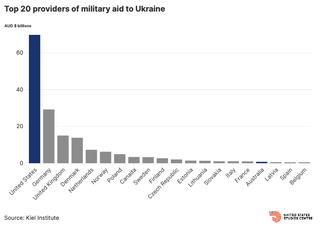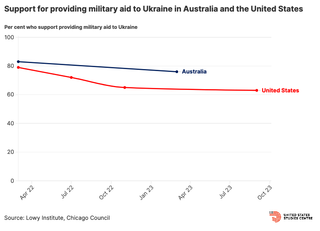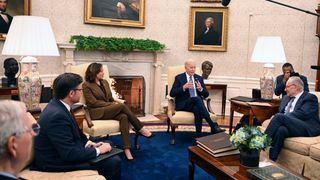On 13 February, the US Senate passed a US$95 billion foreign aid package which included US$60 billion in aid for Ukraine. The United States has provided ongoing military and humanitarian assistance to Ukraine since the beginning of the Russian invasion in February 2022. However, this particular aid package and several others have stalled in the Republican-controlled House, part of a broader trend among Republicans reconsidering providing aid to Ukraine. Last week, Australia committed a further A$50 million in military aid to Ukraine with much less fanfare.

Both Australia and the United States have provided military, financial and humanitarian aid to Ukraine. According to the Kiel Institute, the United States has been the single largest supplier of military aid, contributing A$70 billion since 2022, while Australia has donated A$800 million. However, as a proportion of GDP, Estonia, Denmark and Lithuania have contributed the most, with the United States ranking 16th and Australia 24th for their contributions.

While the majority of Americans and Australians support their countries providing military assistance to Ukraine, the recent US congressional squabble is indicative of a downturn of support from Americans since 2022, particularly among Republicans. According to polling data from the Chicago Council, 61 per cent of Republicans believe US military support to Ukraine is not worth the cost.
Providing foreign military aid isn’t new, the United States spent far more per year on the Iraq and Vietnam wars and provides military aid annually to countries such as Egypt, Israel and the Philippines. In recent years, Australia launched a A$2 billion initiative to provide 22 Guardian-class Patrol Boats to the Pacific Islands, donated ships to Indonesia, the Philippines and Sri Lanka, and spent approximately A$500 million per year over the course of its involvement in Afghanistan (despite a loss of public support over time).
As the war in Ukraine persists, its cost will grow and Western governments will continue to be asked to contribute, but if domestic support declines, this may become even more of a political challenge.






